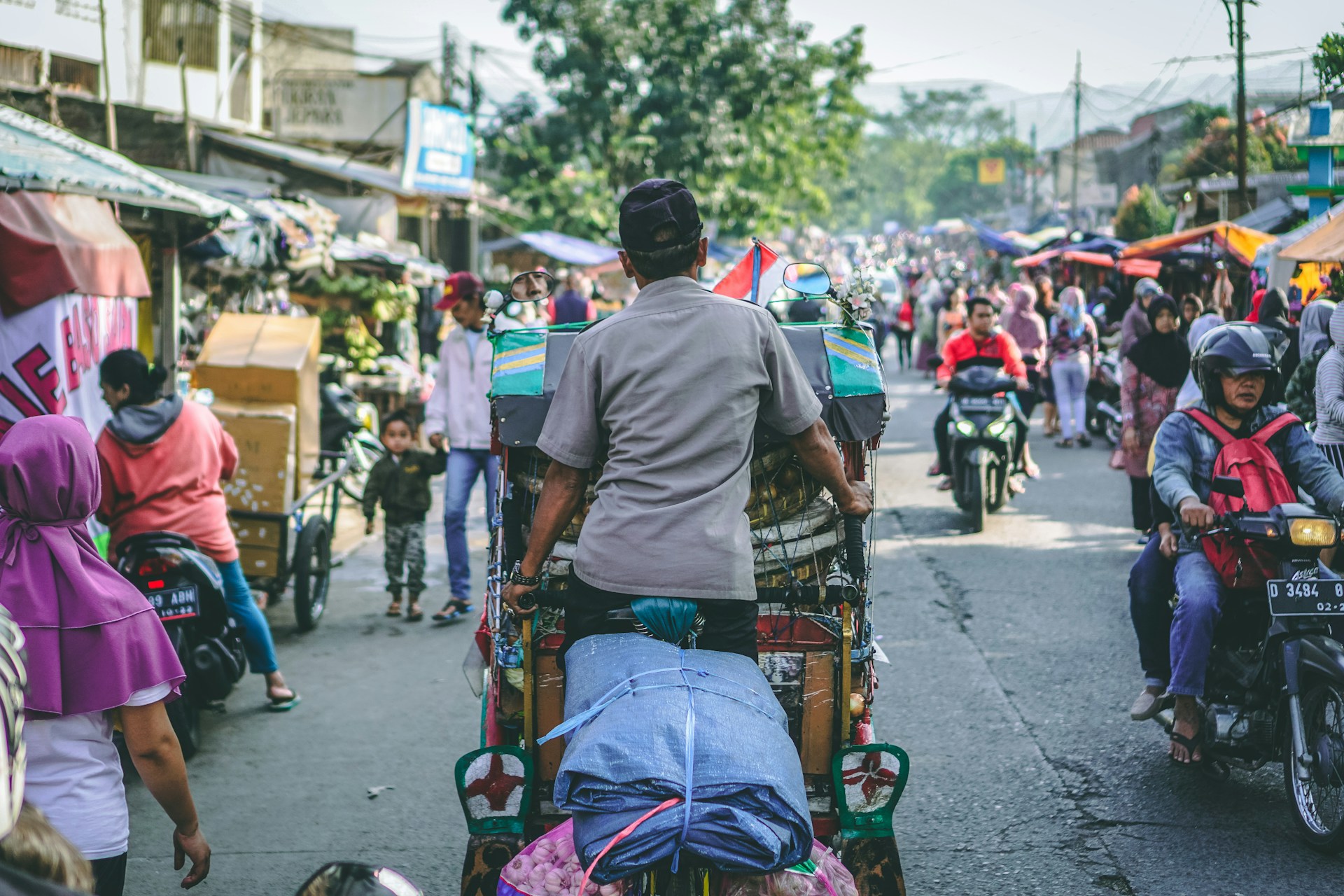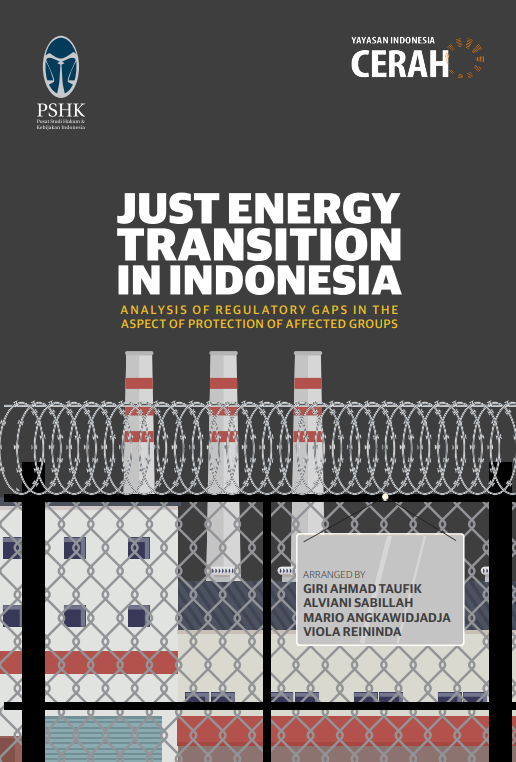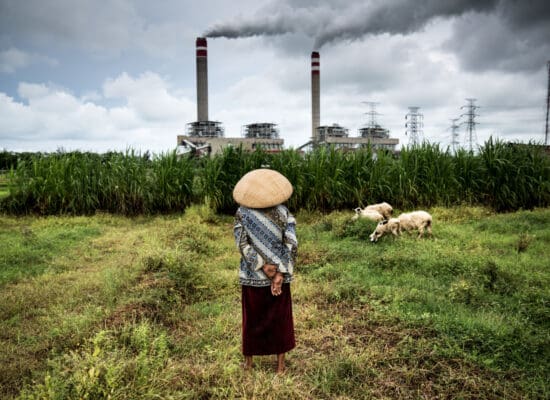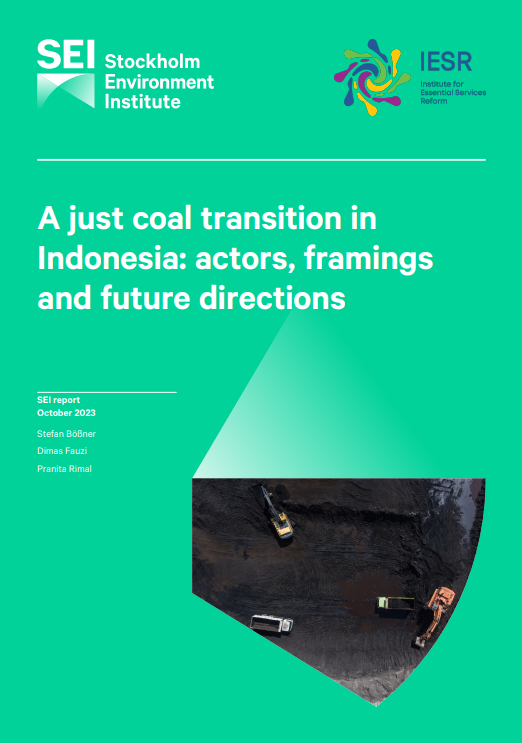Commentary
A Just Energy Transition or Just an Energy Transition? Analysing the protection gap for impacted groups in Indonesia
To achieve a just energy transition, Indonesia needs to quickly fill regulatory gaps that, if left unaddressed, could worsen the access to and quality of social protection for workers, and hinder the inclusion of vulnerable communities impacted by energy transition.

One of the greatest challenges of the energy transition, apart from the economic and energy supply considerations, is to ensure that impacted communities are protected. Notably, these include workers, supply chains linked to power plants, and local communities that rely on the existence of each power plant.
In 2023, the Center for Indonesian Law and Policy Studies (PSHK)—supported by Yayasan Indonesia Cerah (CERAH)—conducted a regulatory mapping exercise to assess the readiness of government policy and regulation for protecting workers. In the resulting report, PSHK concludes that while there is substantial regulatory protection for impacted communities, its effectiveness is hindered by a lack of operational guidelines on how to implement safeguards during the energy transition.
Currently, the operational regulations for energy transition are outlined in the Presidential Regulation on the Acceleration of Renewable Energy. A close reading of the regulation provides insight into how the government perceives energy transition. However, much of the focus within the regulation is on economic and energy supply considerations. Among the 42 articles stipulated, none specifically address safeguards for the impacts of energy transition.
The PSHK report assessed this presidential regulation, along with other regulations relevant to Indonesia’s energy transition, by examining how effectively it protects workers and affected communities.
Protection Gaps in the Labour Sector
With regard to labour protection, there are shortcomings in three main areas: (a) ensuring sufficient social protection for affected workers, (b) promoting skills development and facilitating access to the jobs market for affected workers, and (c) fostering social dialogue.
Adequate Social Protection
Under the Job Creation Law (UU Cipta Keja), social protection has been expanded, but deficiencies remain.
A case in point is the access of non-permanent workers to social protection benefits. Eligibility for claiming these benefits requires workers to have made uninterrupted contributions to social protection agencies for at least 6 consecutive months and to have a 12-month membership of the Healthcare and Social Security Agency (BPJS Kesehatan), which poses challenges for precarious workers.
Given that CELIOS found that nearly 50% of workers in surveyed power plants are classed as precarious, many would be left without financial support in times of unemployment. Simulations by PSHK’s team further reveal that unemployment benefits further cover only 14% to 32% of living costs (depending on the city), and are provided for 6 months on a sliding scale (45% for the first 3 months and 25% for the second 3 months for all regions).
Development of Skills and Access to Labour Market Information
Government efforts to prepare labour market information regarding the energy transition are currently limited. Initiatives focus on identifying future employment opportunities and essential skills in the green economy, primarily through the National Development Planning Agency (Bappenas) and the Indonesian Financial Services Authority (OJK).
The exclusion of the Ministry of Manpower from the Just Energy Transition Partnership (JETP) working group suggests that worker-related issues are being marginalised in energy transition policy development, undermining the role of social dialogue.
Although many green job skills are defined under the Indonesia Skills Qualification Framework (KKNI), institutions offering skills development for the green economy are still limited. For example, SiapKerja, a one-stop digital platform for online training and vacancies managed by the Ministry of Manpower, lacks information on green training and jobs, resulting in a disconnect between those impacted and opportunities in the new green economy.
Social Dialogue
The International Labour Organization’s (ILO’s) just transition guidelines stress the importance of social dialogue in the termination of employment during the energy transition. In Indonesia, the exclusion of the Ministry of Manpower from the Just Energy Transition Partnership (JETP) working group suggests that worker-related issues are being marginalised in energy transition policy development, undermining the role of social dialogue.
Additionally, the 2020 Job Creation Law abolished the authority of the Industrial Relations Court over layoffs, allowing enterprises to proceed with terminations without bipartite dialogue. This could lead companies to make unilateral decisions about terminating employment in energy transition projects without sufficient dialogue taking place beforehand. Furthermore, there are no regulations that specifically mandate social dialogue mechanisms on energy transition issues with technical policy-makers, including for the National Energy Transition and Decarbonization Task Force, which leads policy-making on the energy transition.
Protection Gaps in Affected Local Communities
Although the necessary social protection for development projects exists at the regulatory level (the land acquisition law, for instance, obliges the government to incorporate meaningful involvement of impacted communities in development projects), in Indonesia’s legal system, the operational guidelines for energy transition in the Presidential Regulation on the Acceleration of Renewable Energy lack full recognition of the potential risks to impacted communities. This absence significantly influences how government officials perceive the rights of local communities.
Within Indonesia’s government, local communities without legal land ownership are often dismissed under the pretext of illegal occupation, especially in cases where renewable energy projects require land acquisition. These communities’ relevance to the energy transition is often questioned. Failing to recognise potential risks for such communities significantly increases the likelihood of their exclusion from decision-making processes both at the national level (in policy-making processes) and for projects on the ground.
Just an Energy Transition?
The current approach to Indonesia’s energy transition largely adopts an economic and investment perspective. Identifying regulatory gaps in relation to protecting labour and local communities, however, shows that the government needs to strengthen its regulations in these areas.
This primarily includes (a) incorporating a social protection clause into the Presidential Regulation on the Acceleration of Renewable Energy to adopt the ILO’s guidelines for a just transition in operational policies that promote the protection of fair employment rights, and (b) issuing better. The latter specifically aims to enhance economic, social, and cultural safeguards by ensuring meaningful participation of affected communities and by acknowledging the land rights of undocumented landowners, especially Indigenous communities.
Such a revision would give a legal basis for mainstreaming and would address inclusion issues for marginalised communities impacted by energy transition projects, providing considerations for decision-makers at both policy and project-investment levels. Without the legal and political commitment, Indonesia’s “just energy transition” runs the risk of becoming “just an energy transition” that overlooks justice for the people who are impacted.
Giri Ahmad Taufik is a researcher at the Center for Indonesian Law and Policy Studies (PSHK) and a lecturer at Djuanda University in West Java, Indonesia.
Stay Informed and Engaged
Subscribe to the Just Energy Transition in Coal Regions Knowledge Hub Newsletter
Receive updates on just energy transition news, insights, knowledge, and events directly in your inbox.


